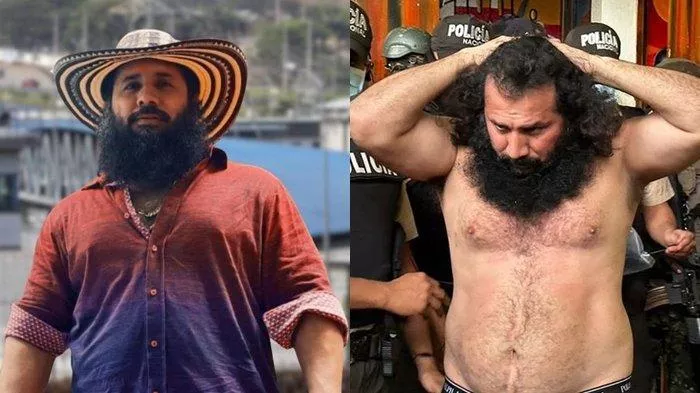In recent years, Ecuador’s prison system has emerged as a focal point of concern, drawing attention to the pervasive influence of criminal organizations and the erosion of institutional control. At the center of this alarming trend is the notorious Los Choneros gang, whose leader, José Adolfo Macías, has become synonymous with the breakdown of order within Ecuador’s correctional facilities.
Introduction:
In the heart of Ecuador’s bustling cities, behind the towering walls of its prisons, lies a world characterized by chaos, corruption, and criminal dominance. Within this labyrinth of concrete and steel, gangs like Los Choneros have risen to prominence, wielding unparalleled power and influence.
The Opulent Life of a Gang Leader:
At the forefront of this underworld stands José Adolfo Macías, known as “Fito,” whose prison cell has been likened to a luxury hotel suite rather than a penitentiary. With amenities that rival those of five-star accommodations, including a four-piece bathroom suite, queen-size bed, and even a mini-fridge, Macías lives a life of opulence behind bars.
The Systemic Failures:
The revelation of Macías’ lavish lifestyle underscores the systemic failures that have allowed criminal organizations to thrive within Ecuador’s prisons. Mass transfers intended to disrupt gang activity have instead facilitated their consolidation of power, while the demobilization of Colombia’s FARC guerrilla force created a void eagerly filled by Ecuadorian gangs.
Chronic Overcrowding and Corruption:
Compounding these issues is the chronic overcrowding that plagues Ecuador’s prisons, subjecting inmates to deplorable conditions while gang leaders enjoy unprecedented privileges. Corruption among prison staff further undermines efforts to maintain order, as inadequate pay and intimidation tactics breed collusion with criminal elements.
The Escalating Violence:
Macías’ daring escape from La Regional prison in January sparked a wave of violence across Ecuador, prompting a state of emergency declaration and a government crackdown on criminal gangs. However, experts caution that militarization alone cannot address the root causes of the country’s woes, including systemic corruption and weak institutions.
Looking Ahead:
As Ecuador grapples with the aftermath of Macías’ escape and the broader scourge of organized crime, urgent reforms to the prison system are imperative. Without comprehensive changes, the specter of lawlessness will continue to loom large, threatening the nation’s aspirations for stability and security.
Conclusion:
The saga of José Adolfo Macías offers a sobering glimpse into the depths of Ecuador’s prison crisis, exposing the stark realities of gang dominance and institutional failure. As the country confronts these challenges head-on, the path forward remains uncertain, yet the need for decisive action has never been more pressing. Only through concerted efforts to address corruption, overcrowding, and systemic weaknesses can Ecuador hope to reclaim control of its prisons and restore faith in its criminal justice system.
